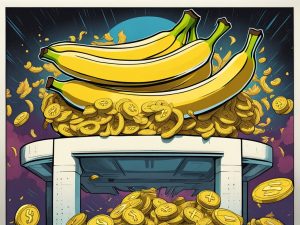HTX Token Conversion Leaves Holders Disappointed and Frustrated
Since early 2018, crypto exchange HTX has had its own token called HT token, named after the exchange’s original branding, Huobi. The token was widely supported by the exchange and offered perks such as discounts on trading fees.
However, in January, the exchange surprised token holders by announcing that all these benefits were being withdrawn from the HT token and handed over to an entirely new token called HTX. This decision did not sit well with many HT token holders who felt they had been left in the cold.
The Shift to a DAO Structure
A significant aspect of the token change is the transition from a centralized exchange model to a decentralized autonomous organization (DAO) structure. By doing so, HTX aims to avoid potential regulatory issues that could arise from offering benefits that may be classified as securities.
The HTX DAO, which claims to be an open and transparent decentralized organization, will now govern the new HTX token. However, it is unclear who exactly is part of this DAO and if it truly operates independently from HTX.
Token Holders Left Out in the Cold
One of the most notable aspects of this token conversion is that the value from previous HT token holders is being taken away and only partially returned to them. All the benefits that gave the HT token value are now being transferred to the HTX token, resulting in a significant drop in the price of the HT token.
The HTX DAO has allocated some new tokens to old token holders, but this allocation is less than 19% of the total supply of HTX tokens. This means that if all HT token holders were to convert their tokens, they would face a dilution of approximately 400%.
The Complicated Conversion Process
The token conversion process itself is convoluted and opaque. The exact conversion rates over time are not defined, and the process is taking place on the HTX exchange, decided by HTX. To receive the full allocation of new tokens, users must complete certain tasks on the exchange, such as achieving a certain trading volume and paying trading fees.
Early migrators to the HTX token were able to receive a larger percentage of the new supply, including locked tokens. However, later migrators are losing out and not receiving an equal share of the new tokens.
Conclusion: Token Holders Disadvantaged
The token conversion from HT to HTX appears to have been designed to recapture value from HT token holders and transfer it to the HTX DAO. While decentralization may be a stated goal, it seems that HTX still maintains control over the decision-making process.
Overall, the token conversion has left many HT token holders disappointed and frustrated. They feel that they have lost out on the benefits they previously enjoyed and that their voices are not being heard in this transition.
Hot Take: Token Conversion Raises Questions about Fairness
The recent token conversion from HT to HTX by crypto exchange HTX has raised concerns about fairness and transparency in the cryptocurrency industry. While the shift to a DAO structure may have been intended to avoid regulatory issues, it seems that token holders are bearing the brunt of this transition.
The lack of clarity regarding the HTX DAO’s composition and decision-making process only adds to the frustration felt by token holders. It is essential for exchanges and projects to prioritize transparency and ensure that their actions do not disadvantage their users.





 By
By

 By
By
 By
By
 By
By
 By
By